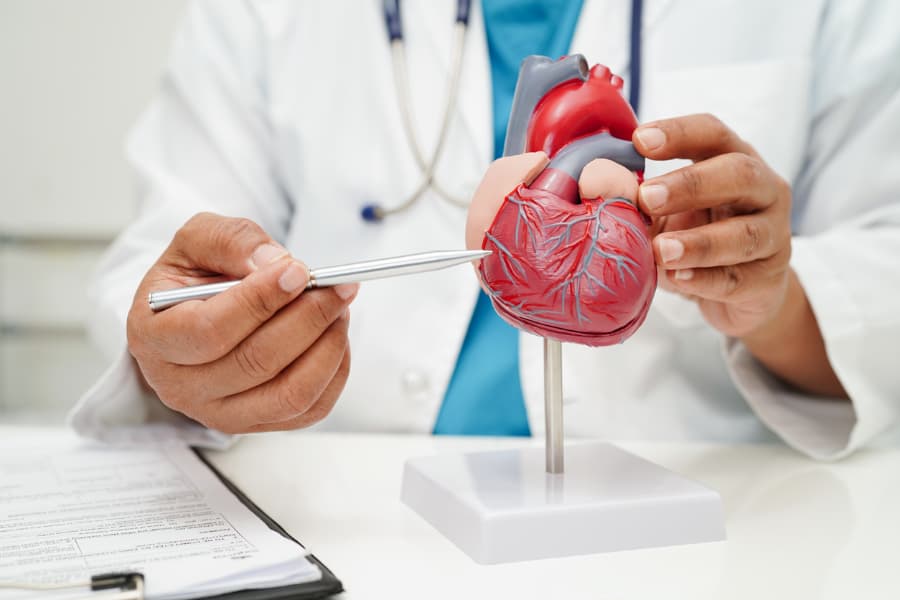Improving your heart health is one of the most beneficial things you can do for your overall well-being. Doing so can help prevent heart disease, which is the leading cause of death in America. At Richmond University Medical Center, our team of cardiovascular physicians provide high-quality cardiovascular care when you need it most. Here, Fiona Shehaj, MD, chief of Women’s Cardiovascular Health in Staten Island, New York, shares more about heart disease and ways to improve your heart health.
What Is Heart Disease?
Heart disease is a term that refers to several different types of heart conditions. The disease encompasses:
- Arrhythmia (irregular heartbeat)
- Carotid artery disease
- Cardiovascular disease
- Stroke
- Coronary artery disease (CAD)
CAD is the most common. Heart disease impacts the amount of blood supplied to the heart, which can lead to a heart attack and other serious health complications. The disease accounts for more than one million deaths each year, with nearly one in every five deaths in the US in 2022 being due to heart disease.
What Are the Symptoms?
Heart disease can be a silent condition, which means you may not see symptoms early on. However, when symptoms arise, you need to seek immediate medical attention. If you are suffering a heart attack, you will feel pain or discomfort in the chest and could also experience neck or upper back pain. Shortness of breath, fatigue, and dizziness are also signs you are experiencing a heart attack. Some may suffer nausea or vomiting.
Heart disease in the form of arrhythmia will result in heart palpitations, which feel like fluttering within the chest. If you are experiencing heart failure, you may feel fatigued and have trouble breathing. This may be accompanied by swelling in the lower body, abdomen, or neck veins.
Dr. Shehaj shares that it is important to note that men and women may experience the symptoms of heart disease differently. While men may feel a radiating pain from the chest down the left arm, women’s symptoms tend to be more subtle. They often only appear in the form of shortness of breath, nausea, fatigue, headaches, or general unease.
What Are the Risk Factors for Heart Disease?
There are many factors that can lead to heart disease, including:
- High blood pressure
- High cholesterol
- A history of smoking
- Diabetes
- Obesity or excess weight
- An inactive lifestyle
- Excessive alcohol use
- High stress
You may be at a higher risk if heart disease runs in your family. Those who are in early menopause, have polycystic ovary syndrome (PCOS), or are dealing with high blood pressure during pregnancy also face an increased risk.
How Is Heart Disease Treated?
Because heart disease is often caused by narrowed arteries, physicians may prescribe blood thinners. There are also medications that are designed to help regulate your heart rate or control your cholesterol. The medications your physician recommends will be based on the cause of the condition and the type of heart disease you are suffering from.
As technology and science continue to advance, the field of cardiology has looked to biologic forms of medication. These options take your physiology into account, helping to prevent negative physiologic responses. This is especially helpful to those with high cholesterol.
If necessary, your medical team may opt for a heart procedure or surgery. While this is usually a last resort, it is on the table for those who have experienced damage to their heart. Some procedures that may be suggested include:
- Coronary angioplasty
- Laser angioplasty
- Atherectomy
- Stent placement
- Transmyocardial revascularization (TMR)
- Bypass surgery
- Minimally invasive heart bypass surgery
- Heart transplant
How to Improve Heart Health
While heart disease is a serious condition, there are a lot of measures you can take to help improve your heart health and overall well-being. These include:
Staying Active
The more your body is moving, the more your heart is working. Fortunately, you do not need rigorous exercise to help keep your heart healthy. Simply going for a daily walk or jog, biking, or taking a swim can give it the action that it needs. This is helpful as both a preventative measure and a treatment option.
Eating Right
Eating processed foods and those packed with preservatives is not good for your heart health. Switching to fresh or frozen fruits and vegetables is a great place to start. It is also smart to cut down on red meat to help lower your cholesterol and avoid eating too many carbohydrates, which can turn into fat once in the body.
Getting Regular Physicals
Seeing your physician regularly is a great way to get ahead of heart disease as well as other conditions. Because heart disease often does not show symptoms until it is too late, getting a checkup annually can help with early detection.
Take Control of Your Heart Health Today
Do not wait to take charge of your heart health. At Richmond University Medical Center, our physicians, nurses, and technicians are all experienced, knowledgeable, and committed to helping you through every step of your healthcare journey. We can perform inpatient or outpatient services to suit your needs, and we even offer emergency services to help when every second counts.
If you want to have a cardiovascular specialist evaluate your heart health, contact our Cardiovascular Department at 718-818-7425 to make an appointment or contact us with any questions.




